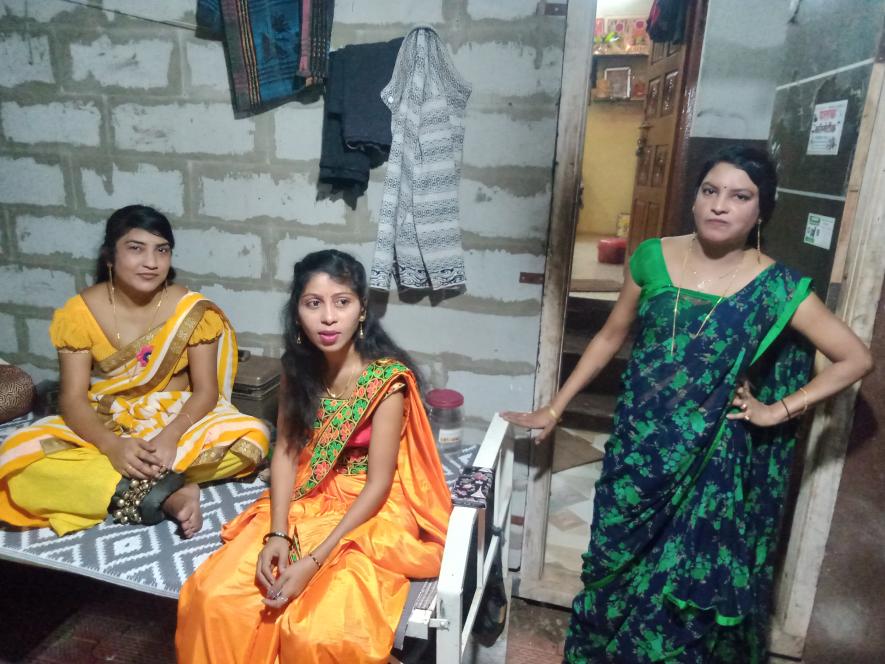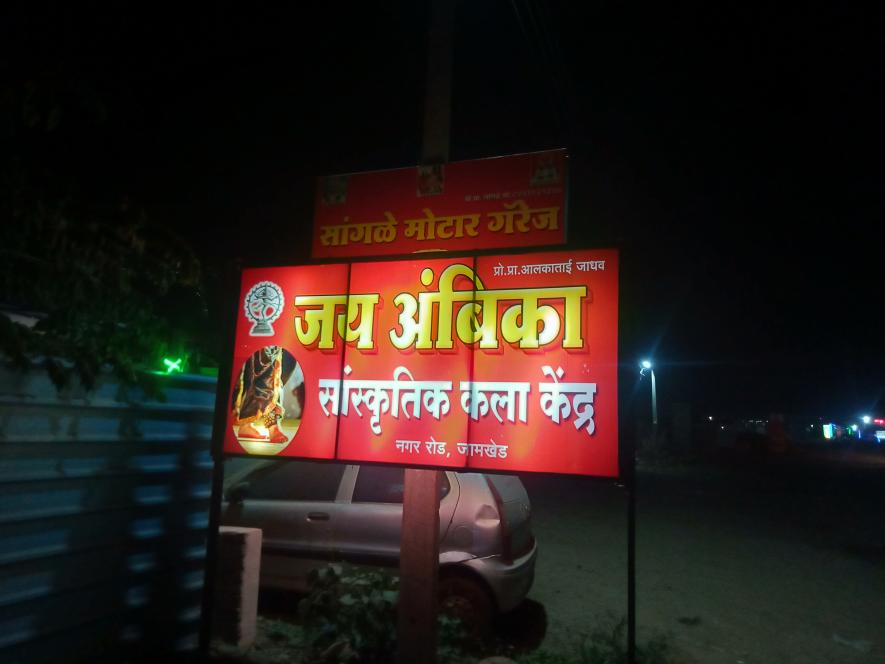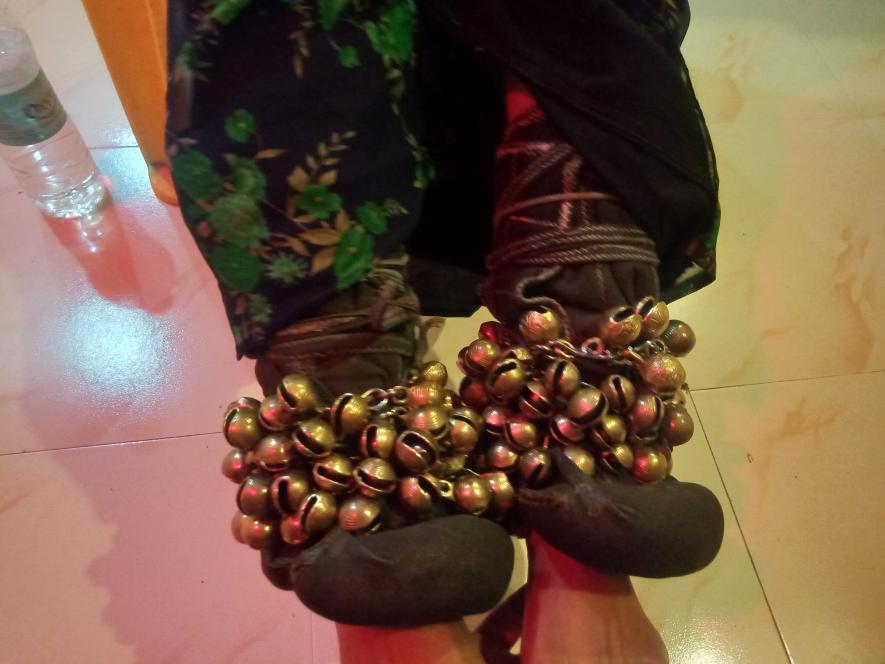
Jamkhed (Ahmednagar): Lavani – a folk art that combines singing and dancing with a legacy of over 600 years – has held an important place in Marathi culture. But the glamour and the spotlight that once the Lavani artists enjoyed in the state seems to have dimmed in the past few years.
Lata Paralikar, a 48-year-old award-winning Lavani artist from Jamkhed, Ahmednagar says she’s tired of waiting for an audience. On a wintery night in Marathwada, at about 2 am, she asked her colleagues to pack up for the day after realising that no one is coming to watch them perform – counting one more night without a baithak.
“I have sold my jewellery to look after my team. But in the past two years, our income has fallen down to about 10%. I am under debt now. I do not know how I can pay outback ever,” Paralikar told NewsClick, at the Jay Ambika Cultural Centre in Jamkhed.
Paralikar has been a celebrated artist with a 30-year-long career and is a familiar face for connoisseurs of Lavani. But she is now struggling to pay her troupe of eight members.
A Lavani troupe typically comprises a harmonium player, a tabla player, a helper and three-four female dancers. The troupe leader like Paralikar collects all the cash – regular charges as well as gifts and looks after payments to their colleagues. A theatre typically is frequented by eight to 10 troupes who have to pay the rent to the theatre owner.
“We equally share the amount for each sitting with the theatre owner. Suppose, we finalise one sitting for Rs 2,000; then, we give Rs 1,000 to the owner. So, a team of eight will have to get their share from merely Rs 1,000,” said Paralikar. If people from the audience award them extra money (on being impressed by their performance), it becomes the only additional source of income for the members.
Paralikar said that before COVID-19, each team used to get three to four sittings per night on average. Every dancer would get Rs 800-Rs1000, while instrument artists would receive at least Rs 500. The four major cultural centres for Lavani – Jamkhed (Ahmednagar), Modnimb (Solapur) Sawangi (Jalana) and Kej (Beed) – were reported thriving before the pandemic. But now, due to dearth of an audience, the artists’ income has fallen drastically. According to the Maharashtra government data, about 40,000 people are employed in Lavani centres all over the state. A majority of them are bound to have suffered due to the COVID-19 lockdown.
Dipak Kurkunde is harmonium player from Lavani artist Reshma Barshikar’s team. He has been playing harmonium for the last 10 years. He told NewsClick: “The COVID-19 chaos started in 2020. Before that, we saw two consecutive years of drought, 2018 and 2019. There were fewer sittings in the drought years, but COVID-19 brought complete shutdown. We have had to take loans from private lenders to be able to survive.”
Paralikar has also taken a loan of Rs 6 lakh from a private lender. “Banks refuse to offer loans to us as we don’t have regular income. I don’t know how many more years I have to keep dancing for to repay this loan,” she said.
She further explained that dancing for two to three hours every night with ghungroo (heavy anklets) is not an easy thing. Each ghungroo strap can weigh up to 3-4 kg. “It hurts a lot, it can make you bleed at times. It takes days for the wounds to be healed. But we have to continue dancing for survival. People often bad-mouth us; they do not bother to find out about our struggles,” she added.
The Maharashtra government claims that it gives Rs 2,500 per month to many registered Lavani artists. But this aid is insufficient, artists feel. “Lavani theatres will survive only with the support of the people. This is why opening the economy and revoking restrictions on gatherings is necessary. Now, things are opening up again gradually. But we don’t know how many of us can survive in such a situation anymore,” said Paralikar.






